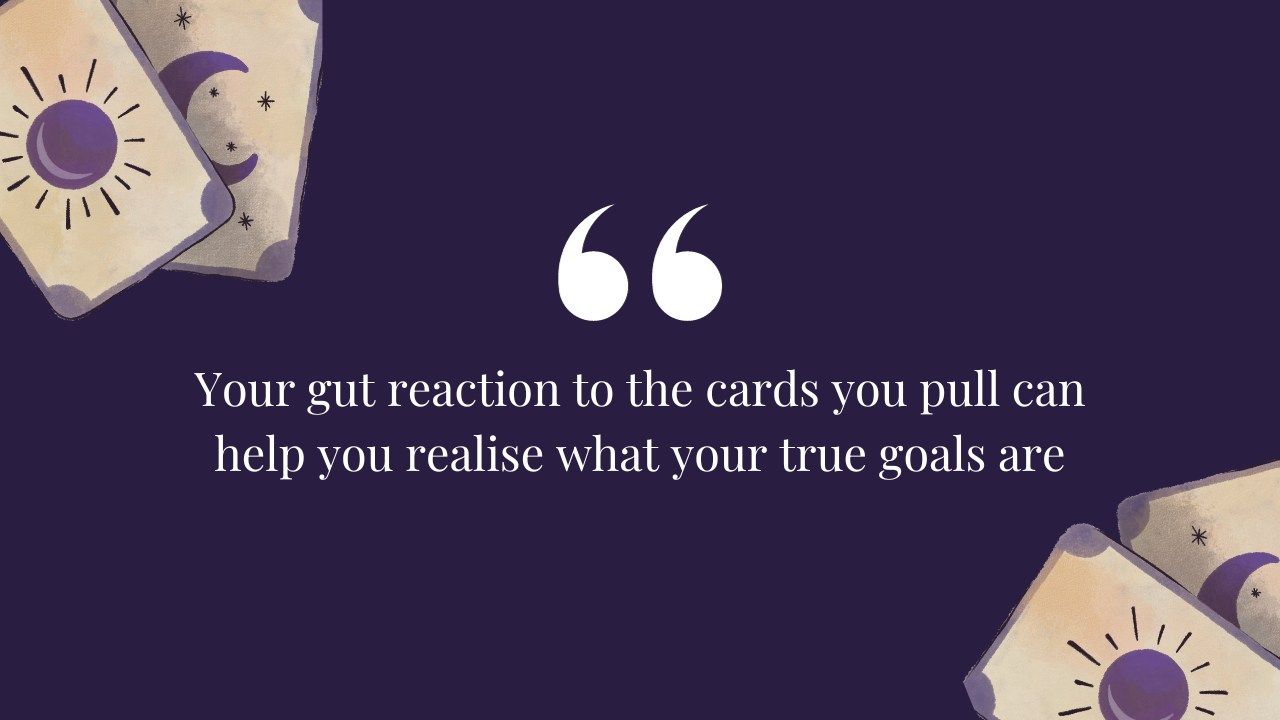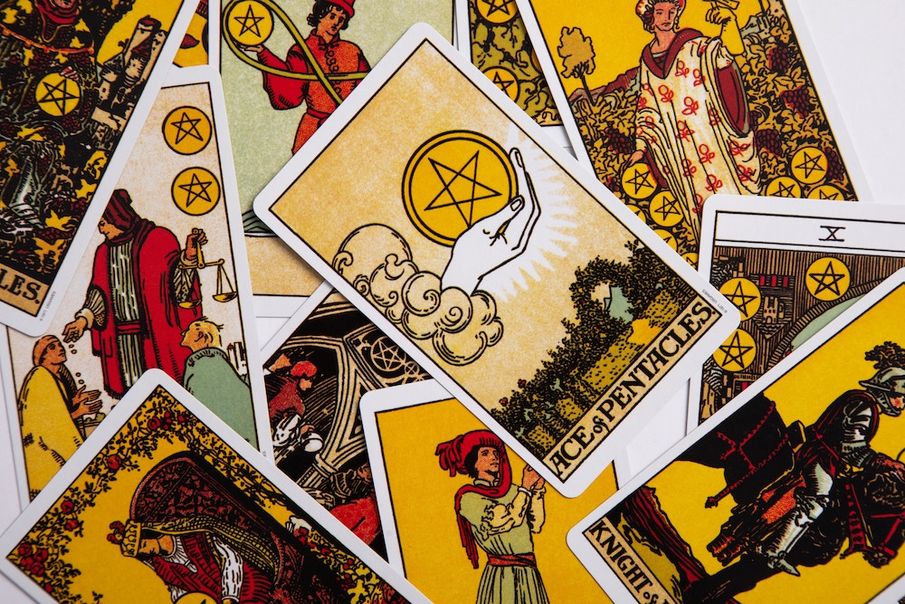Tarot cards can be used as a therapeutic tool to help you tune-in to your gut feelings, so where should you start?
We all know that frustrating feeling when you have a big decision to make, or you’re experiencing a lack of direction in life in general, and you just don’t know what the right answer is.
Do you up-end your whole life and jump in with both feet, or keep moving along as you are right now? Change can be scary, and it’s easy to stagnate before making a decision that could completely change the course of your life. This is where tarot cards could come in handy…
Tarot cards are esoteric divination cards that have been used in Europe since the 14th century to deliver guidance and advice, and they could be a handy tool today. Here are some ways they can help you if you’re looking for answers…

Tarot can help you reflect on your true desires
When you’re at a crossroads in your life and you don’t know the right path to take, tarot can be a helpful tool allowing you to tune-in and find out the answer you actually want deep down.
“If you’re open to advice on an issue, then tarot can be a tool that leads you back to your own inner guidance,” explains Chandler Ford, one of the co-creators of Dvn8, an iOS tarot app.
Your gut reaction to the cards you pull can help you realise what your true goals are, and give you the guidance you need to work towards them.
They can help you accept life’s ups and downs
It can be hard to accept some situations in life, especially ones like the deaths of loved ones, loss of jobs or possessions, and a general lack of direction. But tarot can help you accept the tough times – and celebrate the good – as well as pointing you in the right direction.
“The cards could remind you that every ending necessarily involves a new beginning,” agrees Chandler. “Using tarot in this way becomes less about fortune-telling and more about probing your subconscious.”
As mentioned, there’s no right or wrong way, and it’s entirely personal to yourself. To break it down simply, the standard tarot deck contains the same system of four suits of cards numbered one through 10, along with four court cards per suit. They can be shuffled and ‘pulled’ to deliver responses to specific questions.
“Tarot also contains an additional 22 cards, called the Major Arcana, which can be thought of as ‘archetypal’ cards,” Chandler explains. So, what do they mean? “Each card has a general quality. For example, The Sun card typically symbolises the ego.”
There are some key cards that symbolise positive transformation, such as The Wheel of Fortune, Death (not necessarily a card of doom), and Temperance, and how the cards are presented when you turn them over – upright or in reverse – can change the messages the cards are communicating.
It doesn’t have to be serious
Don’t stress if tarot cards seem confusing – it’s all about having fun with them, and allowing your inner child to play. “Give yourself the space to make mistakes, to be bad at something that you enjoy, and to grow,” recommends Chandler.
And you can’t really get tarot wrong, so it’s the perfect way to enjoy yourself – especially if you’re stressed about a big decision, says Chandler: “It’s up to you to figure out how the cards speak to you and how you like to read. Learning anything new involves trial and error.”
Tarot can be an essential part of your self-care routine
When I lost my job through redundancy, I found myself gravitating towards a deck of tarot cards I’d been gifted, not really knowing what I was doing, but enjoying the fun and the validation when the cards ‘confirmed’ what I’d already been feeling about my situation.
Tarot can feel like an essential piece of self-care at a time when the world is overwhelming. And, as Chandler says: “Tarot can be a rich tool for self-reflection when you’re clear about your intentions, and acknowledge that you’re in the driver’s seat.”


Comments